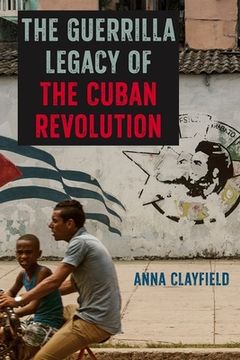Reseña del libro "The Guerrilla Legacy of the Cuban Revolution (en Inglés)"
In this extensively researched book, Anna Clayfield challenges contemporary Western views on the militarization of Cuba. She argues that, while the pervasiveness of armed forces in revolutionary Cuba is hard to refute, it is the guerrilla legacy, ethos, and image--"guerrillerismo"--that has helped the Cuban revolutionary project survive. The veneration of the guerrilla fighter has been crucial to the political culture's underdog mentality. Analyzing official discourse, including newspapers, history textbooks, army training manuals, the writings of Che Guevara, and the speeches of Fidel Castro, Clayfield examines how the Cuban government has promoted guerrilla motifs. After 1959, the revolutionary leadership relied on this discourse to shape a new political culture. During the implementation of Soviet-style management in the late 1960s and 1970s, Cuba underwent profound structural changes, but the beliefs and values that underpinned the Revolution--and that were linked to the guerrilla ethos--were still upheld. Clayfield traces the shifting ideologies that circulated in Cuba during the 1980s to show how this rhetorical strategy helped prevent the proliferation of a siege mentality. The guerrilla code became a recourse Cuban leadership used to steel the population through the 1990s Special Period following the collapse of the Soviet Union. And while the outside world perceived the changes that took place during Raúl Castro's tenure to be signs the Revolution's socialist model was fading, Clayfield proves guerrillerismo remained an important anchor for the new regime. By weaving the guerrilla ethos into the fabric of Cuban identity, the government has garnered legitimacy for the political authority of former guerrilleros, even decades after the end of armed conflicts. The Guerrilla Legacy of the Cuban Revolution chronicles how guerrilla rhetoric has allowed the Revolution to adapt and transform over time while appearing to remain true to its founding principles. It also raises the question of just how long this discourse can sustain the Revolution when its leaders are no longer veterans of the sierra, those guerrillas who participated in the armed struggle that brought them to power so many years ago.

